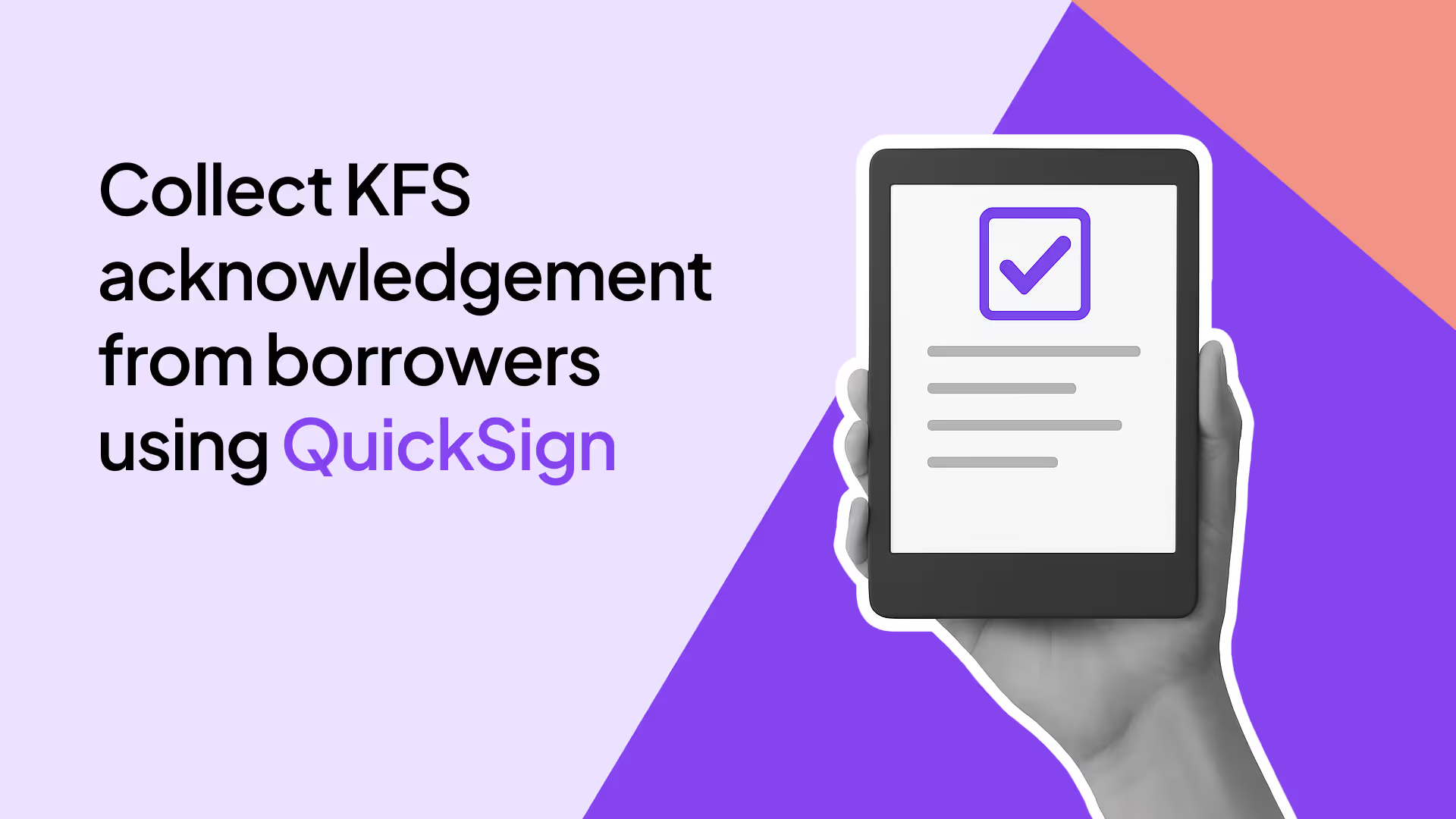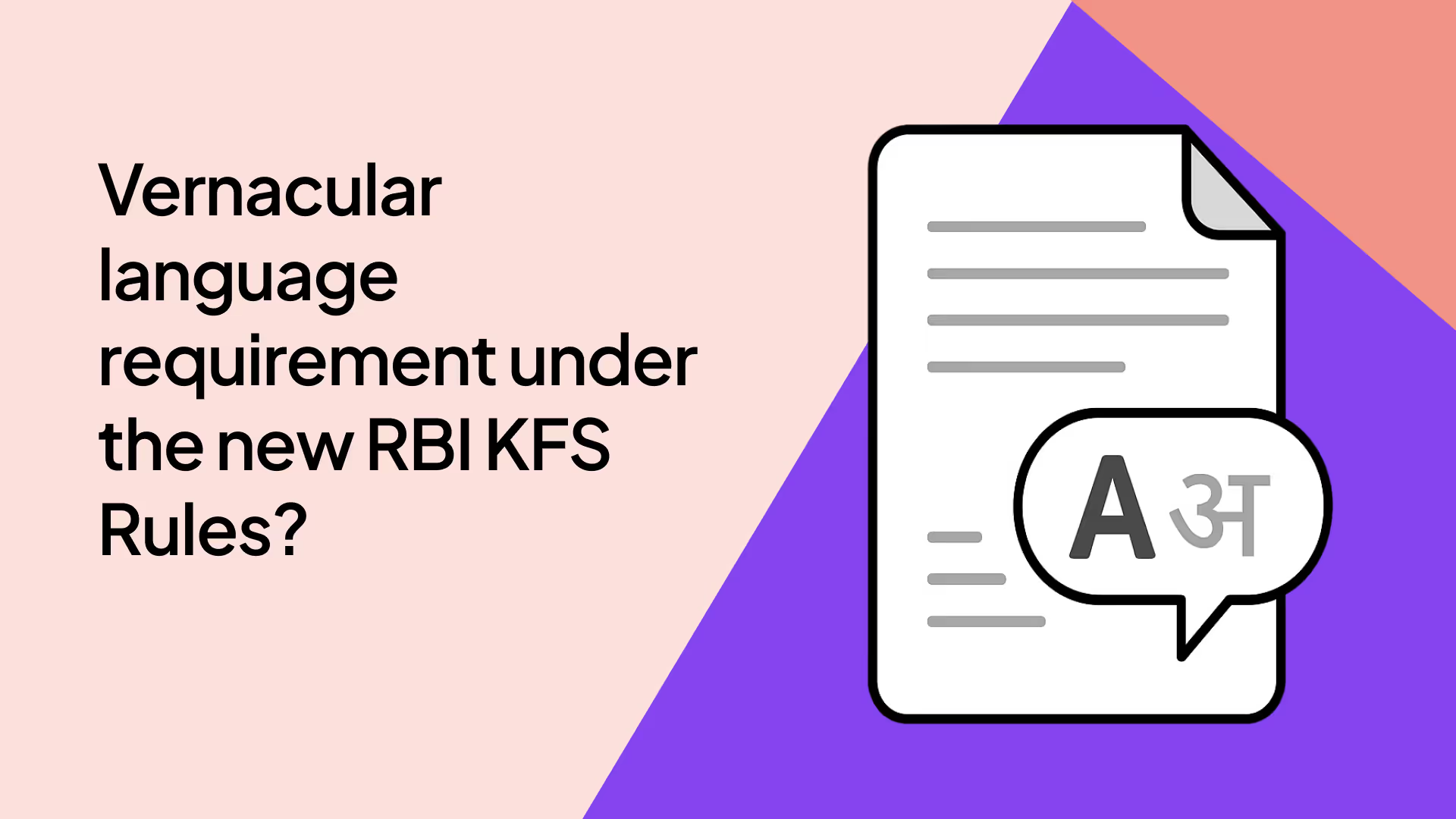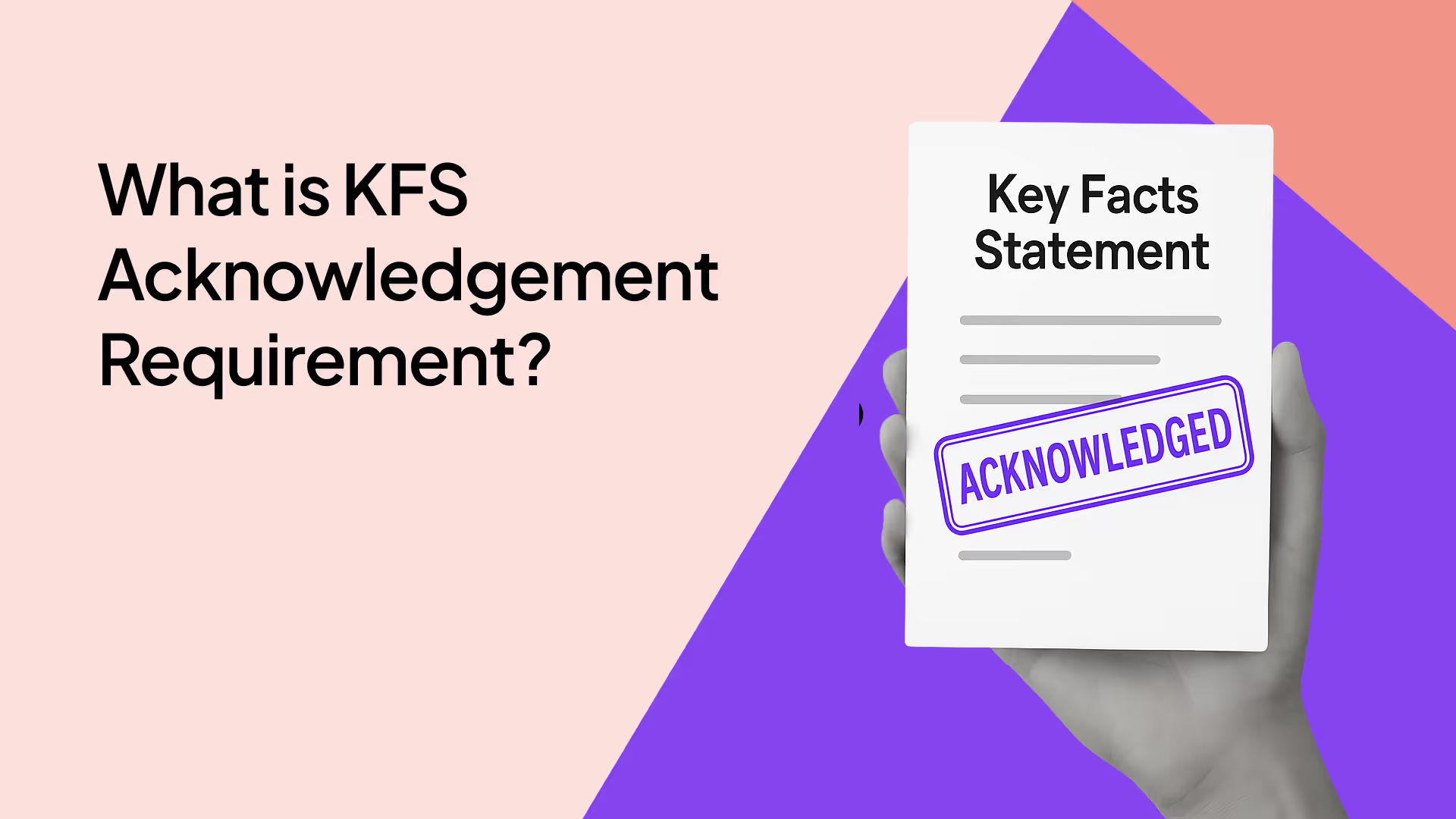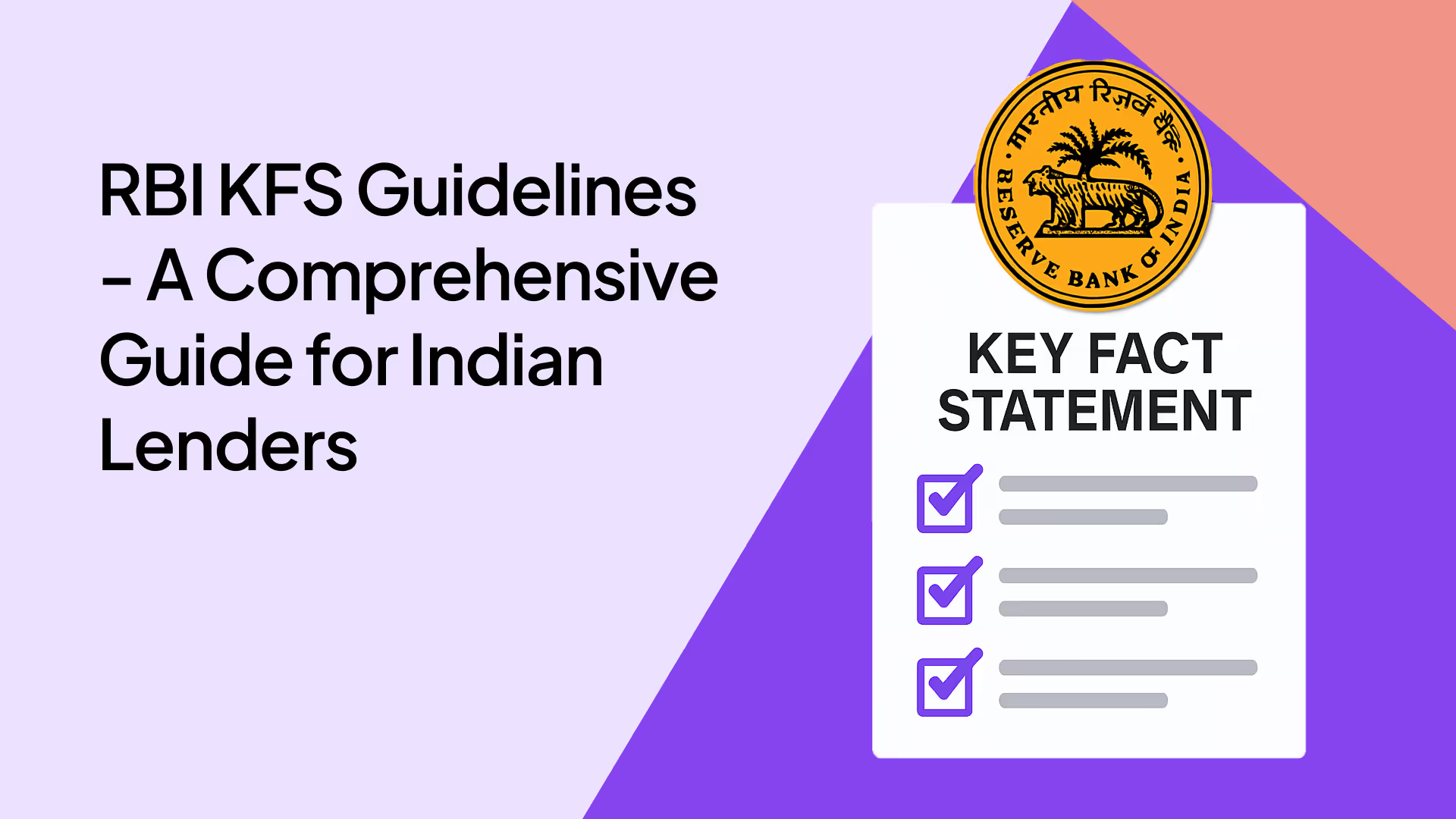As we’ve discussed in previous posts - here, here and here - the new RBI KFS Rules now require lenders to obtain borrower acknowledgement on KFS for all retail and MSME term loans.
However common methods like Aadhaar eSign or Clickwrap might not work - for different reasons.
Leegality QuickSign on the other hand - just might.
Let’s dive in.
Why traditional methods like Aadhaar eSign and Clickwrap won’t work for KFS
The only similarity between Aadhaar eSign and Clickwrap is that they are both digital ways to acknowledge something.
In all other aspects they are polar opposites.
Aadhaar eSign is super secure and enforceable - with protections under the Evidence Act as well. Clickwrap is very loose and not very enforceable.
Aadhaar eSign takes multiple steps to complete. Clickwrap gets completed in 1 second.
However both Aadhaar eSign and Clickwrap may not work for KFS.
First, let’s understand the unique nature of the KFS process.
In most scenarios, lenders are getting KFS acknowledged first - and then getting the loan agreement eSigned.
Essentially this results in:
- 2 document kits involved
- 2 authentications that the borrower must perform
The KFS acknowledgement is - therefore - an extra acknowledgement that lenders now need to insert into their lending journeys.
Now, let’s understand the problems with Aadhaar eSign and Clickwrap:
Aadhaar eSign is too costly and cumbersome for KFS acknowledgement
Cost: Aadhaar eSign can be prohibitively expensive, especially for lenders processing a high volume of loans. The per-transaction cost can quickly add up.
Complexity: The process involves multiple steps, including generating an OTP and linking the transaction to the borrower’s Aadhaar number. This complexity can lead to delays and frustrate borrowers, particularly in time-sensitive lending scenarios like digital personal loans - where a minute of delay can lead to the customer dropping off.
Clickwrap may create problems in RBI audits and court proceedings
Traceability: Clickwrap agreements, which often involve the borrower simply clicking an “I agree” button, lack the robust security features necessary to ensure the acknowledgment can be traced back to the specific borrower. This can create issues in RBI audits.
Verification Issues: Without a clear audit trail, verifying the authenticity of a Clickwrap acknowledgment can be challenging. This is particularly problematic in scenarios where the acknowledgment needs to be enforced in court.
QuickSign might be the perfect alternative for KFS acknowledgements
Leegality QuickSign is a digital acknowledgement product designed specifically to circumvent the above mentioned limitations of Aadhaar eSign and clickwrap.
QuickSign is an OTP-less way to collect auditable, non-tamperable digital acknowledgement on documents.
A way to balance compliance needs with ease of use.
Here’s how Quick Sign works:
Here’s how QuickSign solves the problems with Aadhaar eSign and clickwrap when it comes to KFS acknowledgement:
Is it possible for me to try out a demo flow myself?
Yes.
You have 2 options:
- A full 45 minute KFS journey demo where we’ll show you Quick Sign and other features you’ll need for an end to end compliant KFS process. Book the 45 minute demo here
- A 2.5 minute interactive clickthrough demo that you can try yourself right now. Here it is: 👇













.avif)



